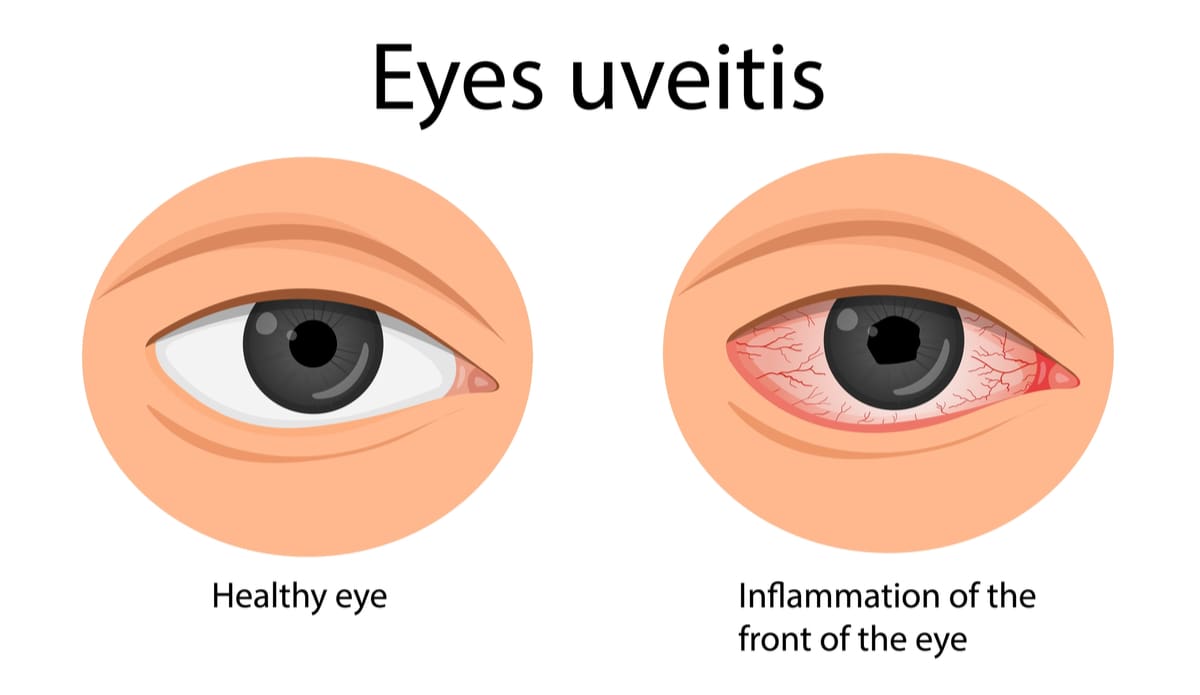
Uveitis Treatment
Uveitis Treatment is a specialized approach aimed at reducing inflammation inside the eye, alleviating discomfort, and preventing potential vision loss. This condition can affect different parts of the eye and may be caused by infections, autoimmune disorders, or other underlying health issues. At Chakshu Eye Care, we provide comprehensive diagnostic evaluations to determine the root cause and tailor a treatment plan suited to each patient’s needs.
What is Uveitis?
Uveitis is a condition characterized by inflammation of the uvea, the middle layer of the eye that includes the iris, ciliary body, and choroid. This inflammation can cause a range of symptoms, including eye redness, pain, blurred vision, light sensitivity, and floaters. If left untreated, uveitis can lead to serious complications such as glaucoma, cataracts, retinal damage, and even permanent vision loss.
The causes of uveitis vary and can include autoimmune disorders, infections, eye injuries, or underlying systemic diseases. In some cases, the exact cause remains unknown. Uveitis can occur suddenly or develop gradually and may affect one or both eyes. Depending on the location of inflammation, it is classified into different types: anterior uveitis (iritis), intermediate uveitis, posterior uveitis, and panuveitis.
Symptoms of Uveitis
The symptoms of uveitis can vary depending on the type and severity of inflammation, but common signs include:
Common Symptoms of Uveitis
- Eye Redness – Due to inflammation in the uvea.
- Eye Pain – A dull or aching pain that worsens with movement.
- Blurred Vision – Difficulty seeing clearly due to inflammation.
- Light Sensitivity (Photophobia) – Discomfort or pain when exposed to bright light.
- Floaters – Dark spots or shapes that appear to drift across your vision.
- Tearing – Excessive watering of the eyes.
- Decreased Vision – Partial or complete loss of vision in severe cases.
Symptoms Based on Uveitis Type
- Anterior Uveitis (Iritis): Eye pain, redness, and light sensitivity.
- Intermediate Uveitis: Floaters and blurred vision with little or no pain.
- Posterior Uveitis: Decreased vision, floaters, and minimal redness.
- Panuveitis: A combination of symptoms affecting all layers of the uvea.
What Causes Uveitis?
Uveitis can develop due to various underlying factors, including autoimmune diseases, infections, eye injuries, and in some cases, unknown causes. It occurs when the immune system mistakenly attacks the tissues inside the eye, leading to inflammation. Autoimmune conditions such as rheumatoid arthritis, lupus, sarcoidosis, and ankylosing spondylitis are common triggers. Infections, including tuberculosis, syphilis, herpes, and toxoplasmosis, can also lead to uveitis, especially if they affect the body’s immune response. Additionally, eye injuries, trauma, or complications from eye surgery may cause inflammation. In rare cases, certain cancers like lymphoma can present with symptoms of uveitis.
However, in some patients, the exact cause remains unknown, a condition referred to as idiopathic uveitis. Identifying the root cause is crucial, as it helps in selecting the most effective treatment plan to reduce inflammation and prevent complications.
What Are the Treatment Options for Uveitis?
The treatment for uveitis depends on its underlying cause, severity, and the part of the eye affected. The primary goal of treatment is to reduce inflammation, relieve symptoms, and prevent complications such as glaucoma or vision loss. In most cases, corticosteroid eye drops are the first line of treatment to reduce inflammation, especially for anterior uveitis. If the inflammation is more severe or affects deeper parts of the eye, oral or injectable steroids may be prescribed. In cases where uveitis is linked to an autoimmune disorder, immunosuppressive or biologic medications might be required to control the immune system’s response.
If an infection is the cause of uveitis, specific antiviral, antibacterial, or antifungal medications are used to treat the underlying infection. Additionally, pupil-dilating eye drops may be prescribed to reduce pain and prevent complications like scarring. Chronic or recurrent uveitis requires long-term monitoring and personalized treatment plans to manage inflammation and prevent vision loss. Regular eye check-ups are essential to ensure proper management and timely intervention.
Can uveitis cause permanent vision loss?
Yes, if left untreated or not managed properly, uveitis can lead to permanent vision loss. Chronic inflammation inside the eye can cause serious complications such as glaucoma, cataracts, retinal detachment, macular edema (swelling of the retina), and optic nerve damage. These conditions can progressively impair vision and, in severe cases, result in blindness.
Early diagnosis and prompt treatment are essential to control inflammation, prevent complications, and protect long-term vision. Regular eye check-ups and ongoing management are crucial, especially for individuals with recurrent or chronic uveitis.
Recovery & Healing from Uveitis Treatment
The recovery and healing process from uveitis treatment varies depending on the severity, underlying cause, and type of uveitis. With early diagnosis and proper treatment, mild cases of uveitis can resolve within a few weeks, while more severe or chronic cases may require long-term management. During treatment, corticosteroid eye drops or other prescribed medications help reduce inflammation and relieve symptoms. Patients may notice improvements in vision, reduced redness, and less discomfort within days to weeks of starting treatment. However, in cases where the inflammation is caused by an autoimmune disease or infection, ongoing medication and regular monitoring may be necessary to prevent recurrence.
To ensure a smooth recovery, regular follow-up visits with an eye specialist are essential to track progress and adjust treatment if needed. Patients are advised to follow their medication schedule carefully, avoid eye strain, wear sunglasses to protect from bright light, and maintain overall health. While many cases of uveitis heal completely, some individuals may experience flare-ups or long-term complications, making continuous eye care and lifestyle adjustments important for maintaining clear vision and eye health.
Why Choose Chakshu Eye Care for Uveitis Treatment?
At Chakshu Eye Care, we are committed to providing expert care and advanced treatment solutions for uveitis, ensuring the best possible outcomes for our patients. Here’s why we stand out:
✔ Experienced Specialists – Our team of highly skilled ophthalmologists and uveitis experts have extensive experience in diagnosing and treating all types of uveitis with precision and care.
✔ Advanced Diagnostic Technology – We utilize cutting-edge imaging and diagnostic tools to accurately determine the underlying cause of uveitis, allowing for a personalized and effective treatment plan.
✔ Comprehensive Treatment Approach – From corticosteroids and immunosuppressive therapy to the latest biologic medications, we offer a full spectrum of treatment options to control inflammation and prevent complications.
✔ Personalized Patient Care – We understand that every case is unique. Our team ensures individualized treatment plans that prioritize vision preservation, comfort, and long-term eye health.
✔ Ongoing Monitoring & Support – Since uveitis can be a chronic condition, we provide regular follow-ups and continuous care to minimize flare-ups and manage associated conditions effectively.
With a strong focus on patient-centered care and advanced eye treatment, Chakshu Eye Care is dedicated to helping patients recover from uveitis and maintain clear, healthy vision.
